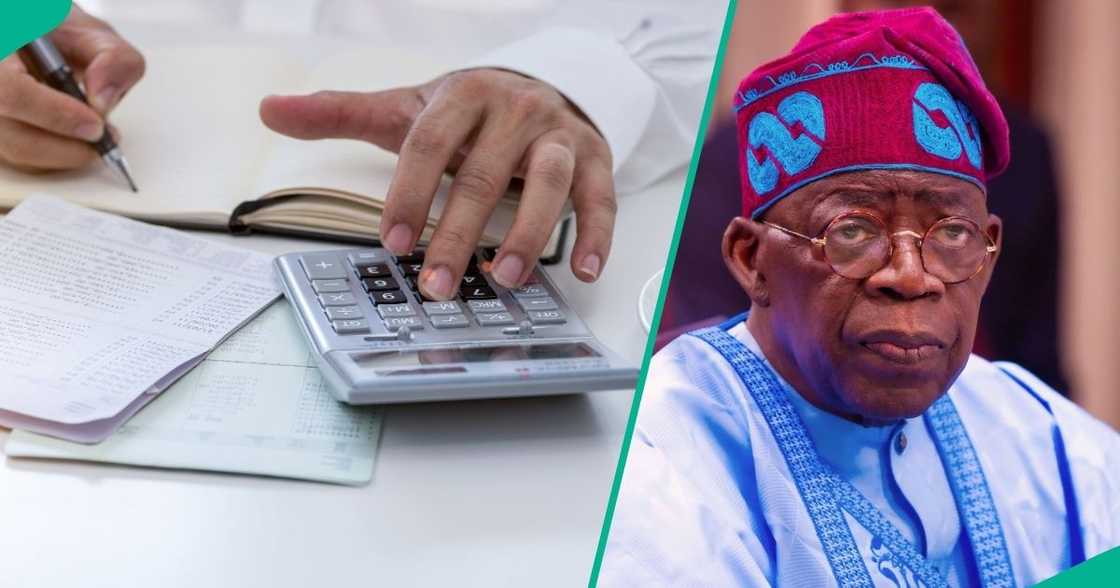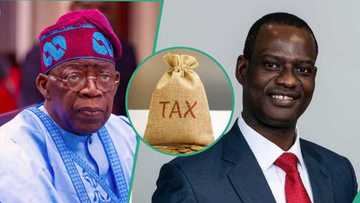Nigerians To Stop Paying 5 Bank Charges From January 2026
- From January 1, 2026, Nigerians will no longer be charged for several transactions under the new tax law
- President Bola Tinubu's full Tax Reform is set to take full effect next year, bringing several changes
- The new tax law also provides relief for everyday banking services, benefiting low-income earners, average taxpayers, and small businesses
Legit.ng journalist Dave Ibemere has over a decade of experience in business journalism, with in-depth knowledge of the Nigerian economy, stocks, and general market trends.
Nigerians will no longer be charged for several common banking transactions as part of the government’s new tax reform.
On June 26, 2025, President Bola Tinubu signed the Tax Reform Bills into law. These laws include the Nigeria Tax Act (NTA), the Nigeria Tax Administration Act (NTAA), the Nigeria Revenue Service Act (NRSA), and the Joint Revenue Board Act (JRBA), collectively referred to as “the Acts” hereafter.

Read also
Tinubu writes Senate, requests approval to borrow N1.15trn from Nigerians, others, gives reasons

Source: Facebook
The acts overhaul the Nigerian tax to drive economic growth, increase revenue generation, improve the business environment, and enhance effective tax administration across the different levels of government.
5 banking tax removed from January 2026
In a post shared on X, Taiwo Oyedele disclosed five key banking charges that Nigerians will no longer pay for.
The main one is the Electronic Money Transfer Levy. According to Oyedele, Nigerians will no longer pay N50 for electronic money transfers below N10,000.
Secondly, he said stamp duty on salary payments will also be removed from January 2026.
Thirdly, transfers of government securities or shares will no longer attract stamp duty.
Fourthly, documents for the transfer of stocks and shares will also be exempt from stamp duty charges.
Finally, Oyedele noted that intra-bank transfers will no longer be subject to the N50 levy.
A section of the tax law reads:
"Electronic transfer or electronic receipts of money of a sum below N10,000 or its equivalent in other currencies, transfers for salary payment and intra-bank self- transfers are exempted."

Source: Instagram
Other key tax exemptions
Under the new tax framework, several goods and services will attract 0% Value Added Tax (VAT) or are exempt, including basic food items, rent, education and health services, pharmaceutical products, agricultural inputs, disability aids, baby and sanitary products, as well as transport, land and buildings, and electric vehicles.
Also, Small companies with a turnover not exceeding N100 million are also exempt from charging VAT, while VAT on diesel, petrol, solar equipment, and certain humanitarian supplies remains suspended or exempt.
CBN approved banking charges
Earlier, Legit.ng reported that the Central Bank of Nigeria shared the list of approved bank charges for commercial banks and other financial institutions.
The document titled the guide to charges by banks, and oher financial and non-bank financial institutions instructed that transaction receipt/alert/confirmation for any charge shall contain a description of the charge.
Banks impose various charges on their customers, including transfer fees, account maintenance fees, and ATM withdrawal fees. For example, for individual accounts, cash deposits attract a 2% charge on transactions above N500,000, while cash withdrawals attract a 3% charge on amounts exceeding N500,000.
Proofreading by James Ojo, copy editor at Legit.ng.
Source: Legit.ng



